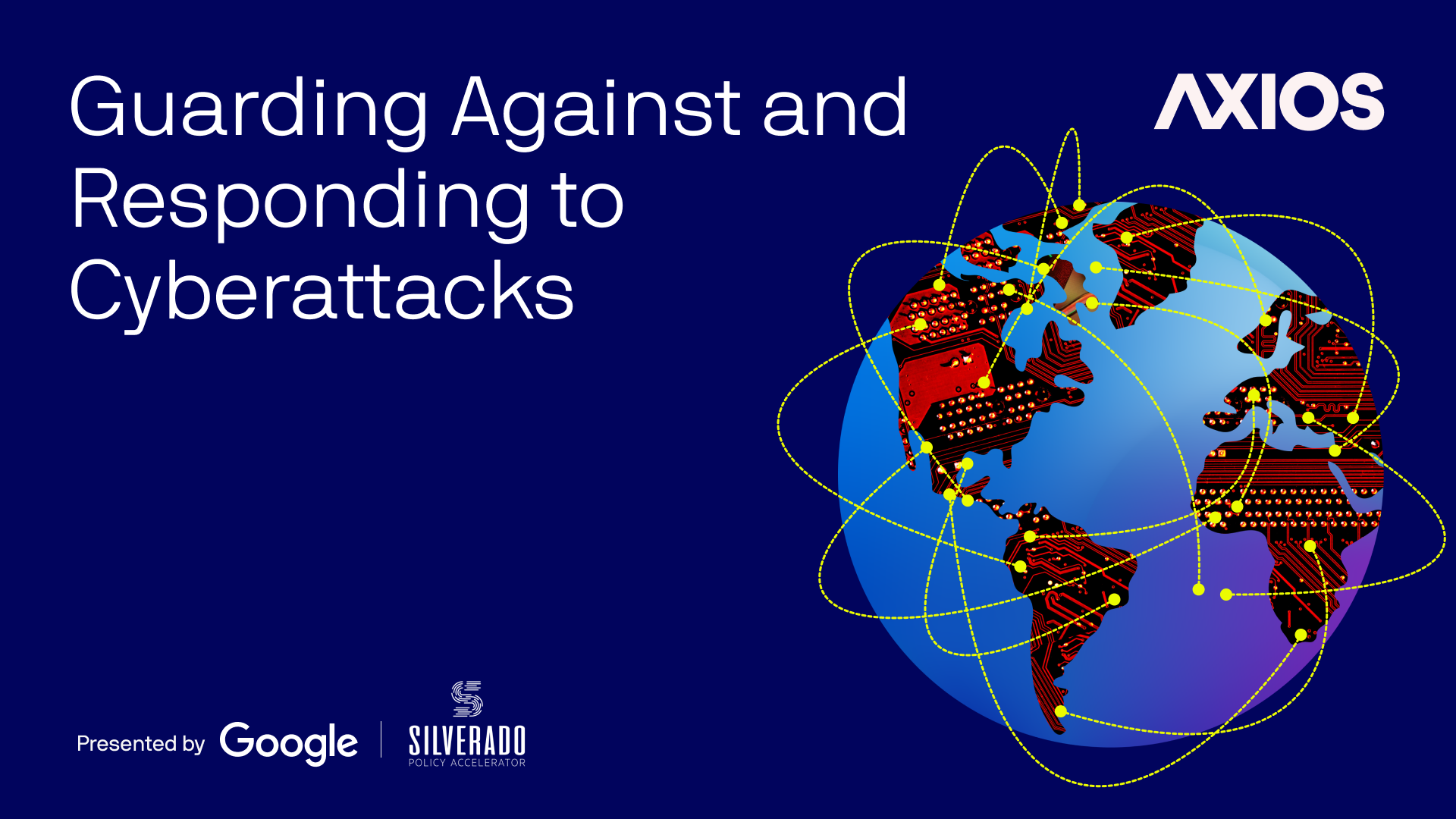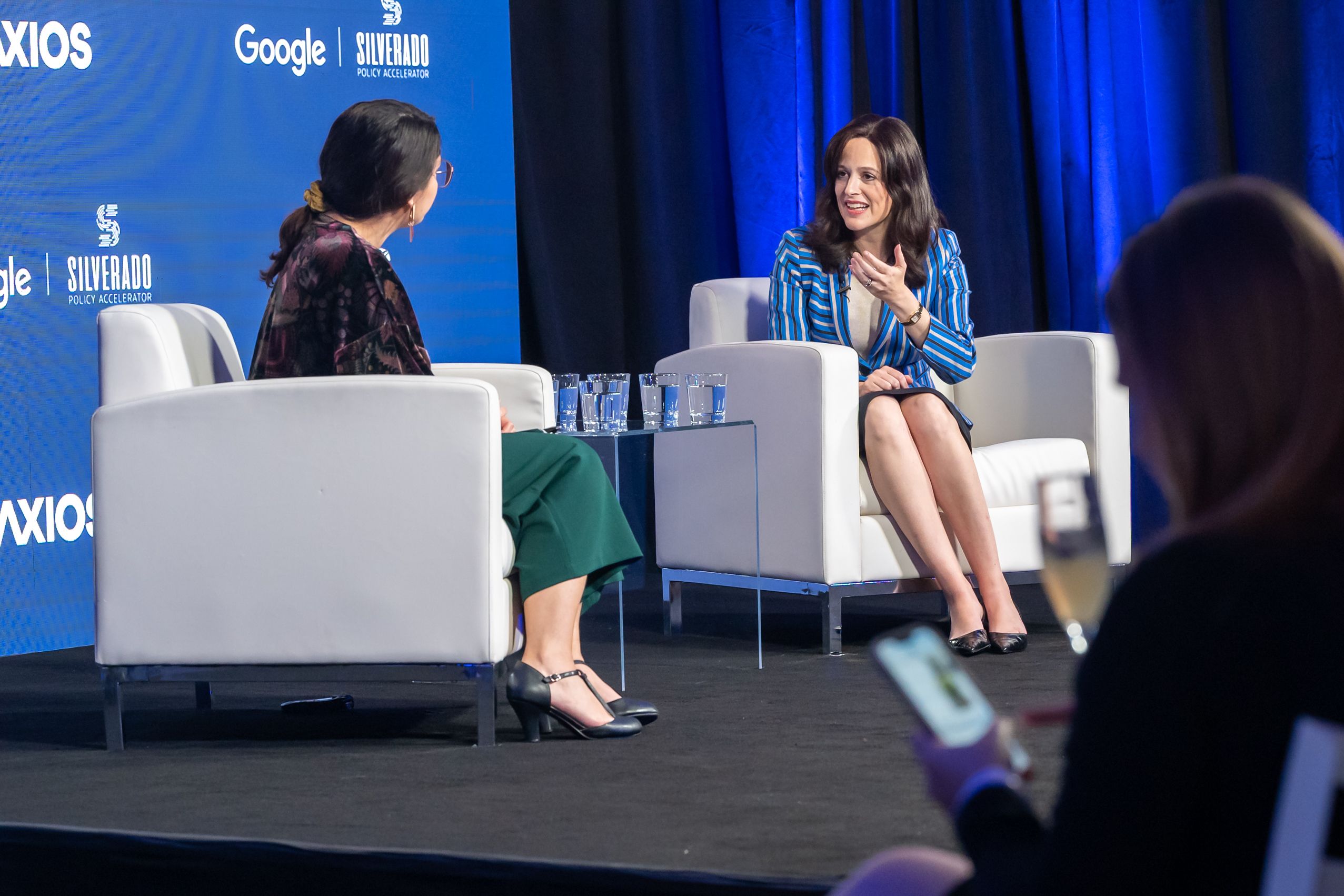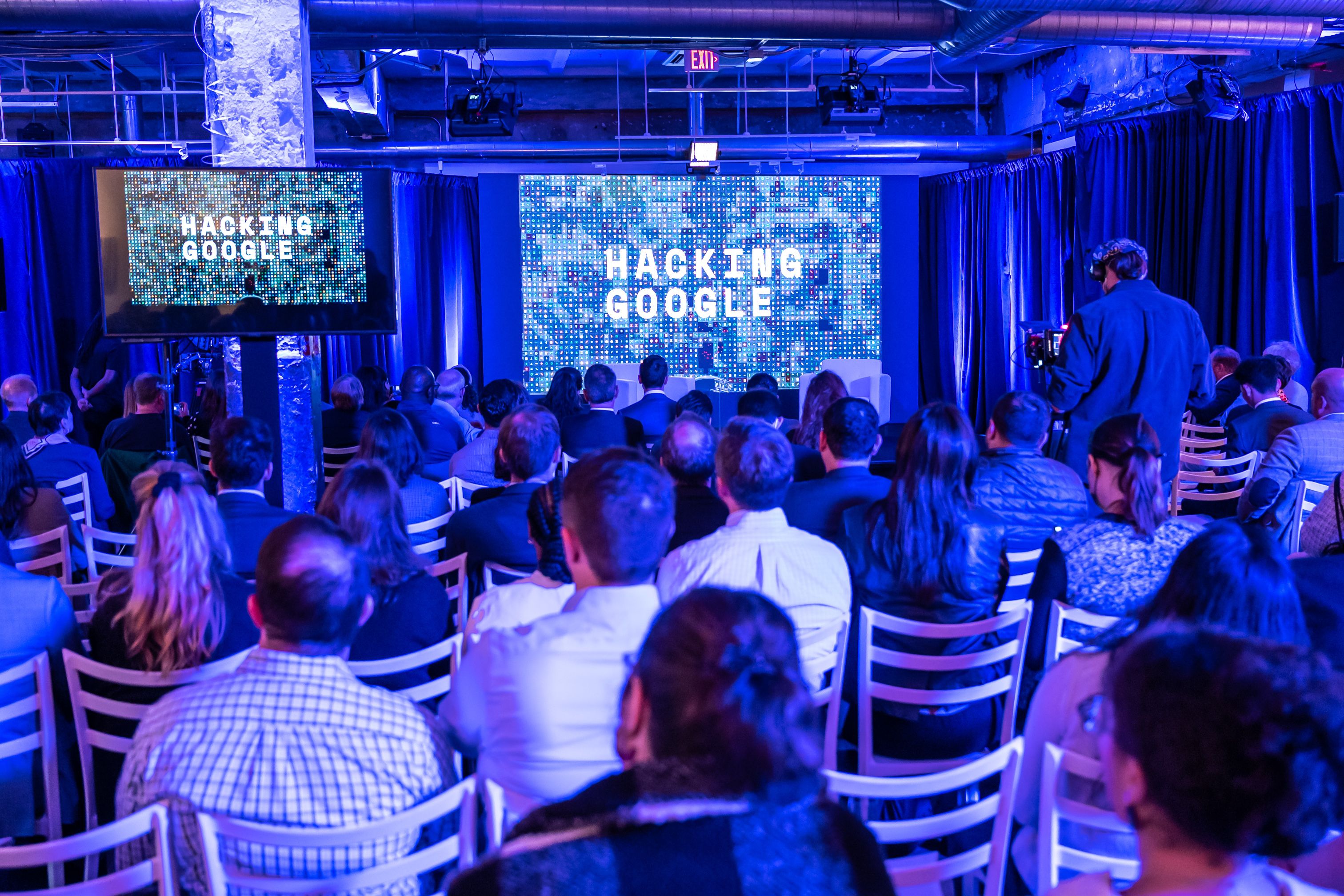Axios Event: Guarding Against and Responding to Cyberattacks
Add Axios as your preferred source to
see more of our stories on Google.

On Thursday, October 13, Axios hosted an in-person cybersecurity event in Washington, D.C., featuring interviews with National Security Council’s deputy national security adviser for cyber and emerging tech Anne Neuberger and former U.S. Homeland Security adviser Thomas P. Bossert. The program also included a private screening from the docuseries “Hacking Google.”
Anne Neuberger shared updates on the White House's work to stand up new cyber regulatory structures for critical infrastructure sectors, CISA’s cybersecurity performance goals and more.

- On the next critical infrastructure sectors that the White House will focus on: “Water, power, hospitals. Those networks and the technology were not necessarily built for the threats we face today, where we have countries using…disruptive or destructive attacks as we’ve seen Russia conduct in Ukraine, as we’ve seen Iran conduct in Albania…Many of our peer governments, whether the European Union or Koreans and others, have put in place requirements over the years to have a minimum cybersecurity standard for critical infrastructure..we are now recognizing we very much need to do that in the U.S.”
- On federal agencies releasing their own cyber guidelines and rules: “We started right after Colonial looking to see ‘let’s make sure that we use every authority we have to keep the American people safe...’ The Transportation Security Administration…rapidly rolled that out for oil and gas pipelines, aviation, rail. Updates will be coming on that…The FCC will be rolling out a notice on emergency and warning systems for communications. Exactly as you noted, water, and HHS will be looking at healthcare.”
Thomas P. Bossert, who has served in two presidential administrations, reflected on how cybersecurity awareness and frequency of threats have evolved over the last two decades.
- On changes in the regulatory landscape: “In the Bush White House, we wouldn’t have talked about anything publicly that had to do with a foreign adversary. We wouldn’t have talked about our role in what we were doing with respect to a foreign adversary. It would have been, in some ways, held secret from White House decision makers.”
- On praise for Anne Neuberger and bipartisanship on cyber issues: “I tried desperately to get Anne to come to the White House when I was there last…most of the people that are there now are people we have all worked with.”
In a View From The Top segment, vice president of security engineering at Google Heather Adkins and co-founder and chairman of Silverado Policy Accelerator Dmitri Alperovitch discussed the rise in cyber threats within recent years, trends in nation state hacking and potential solutions for effectively guarding against and responding to attacks.
- “We’re actually entering perhaps one of the most dangerous times that we’ve had in the cyber domain, particularly due to a couple events that have occurred in the last two weeks. One of them…is the annexation that Vladimir Putin has announced of Ukrainian regions…the other event…is something that many may have missed…regulatory change that the Biden Administration announced…in the chips sector,” Alperovitch said.
- "I…look at 2010 and the way that the world responded then to now is very different. There were no forums like this. The way the government responded in 2010 to the attack is very different than the conversations you hear happening now. The technology we have available to us, we've been working on it for 13 years. We're in a much better state and I think a lot of companies are now more aware than they've ever been, thanks to cryptocurrency, mining and ransomware…I think because of that awareness, we actually have a higher level of resiliency on recovery. And I actually think the ability to recover from attacks is just as important as the ability to prevent them…” Adkins said.

Thank you Google and Silverado Policy Accelerator for sponsoring this event.
